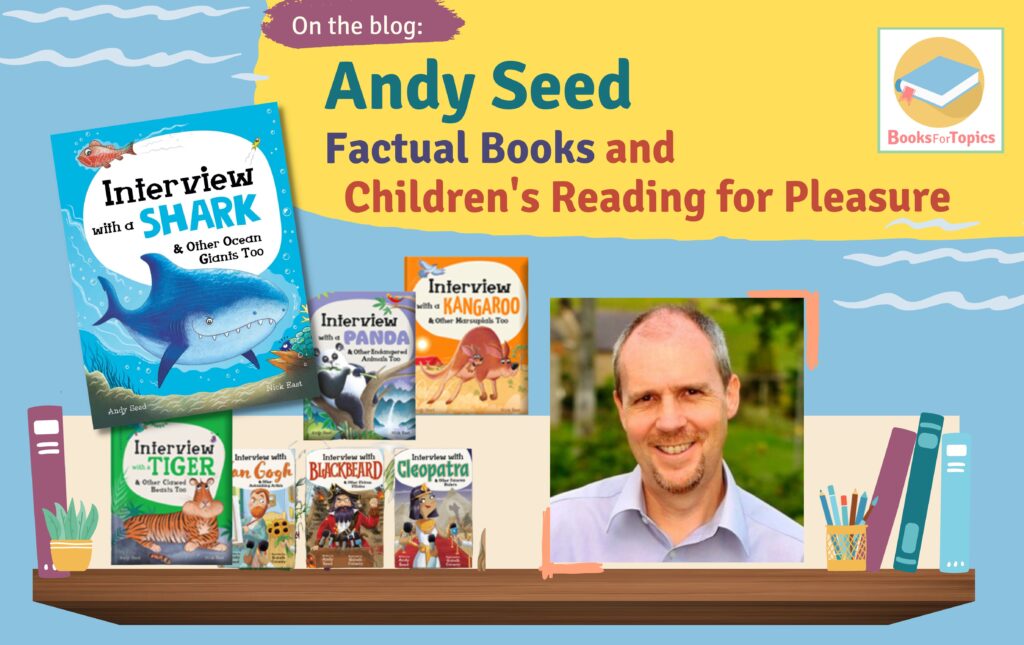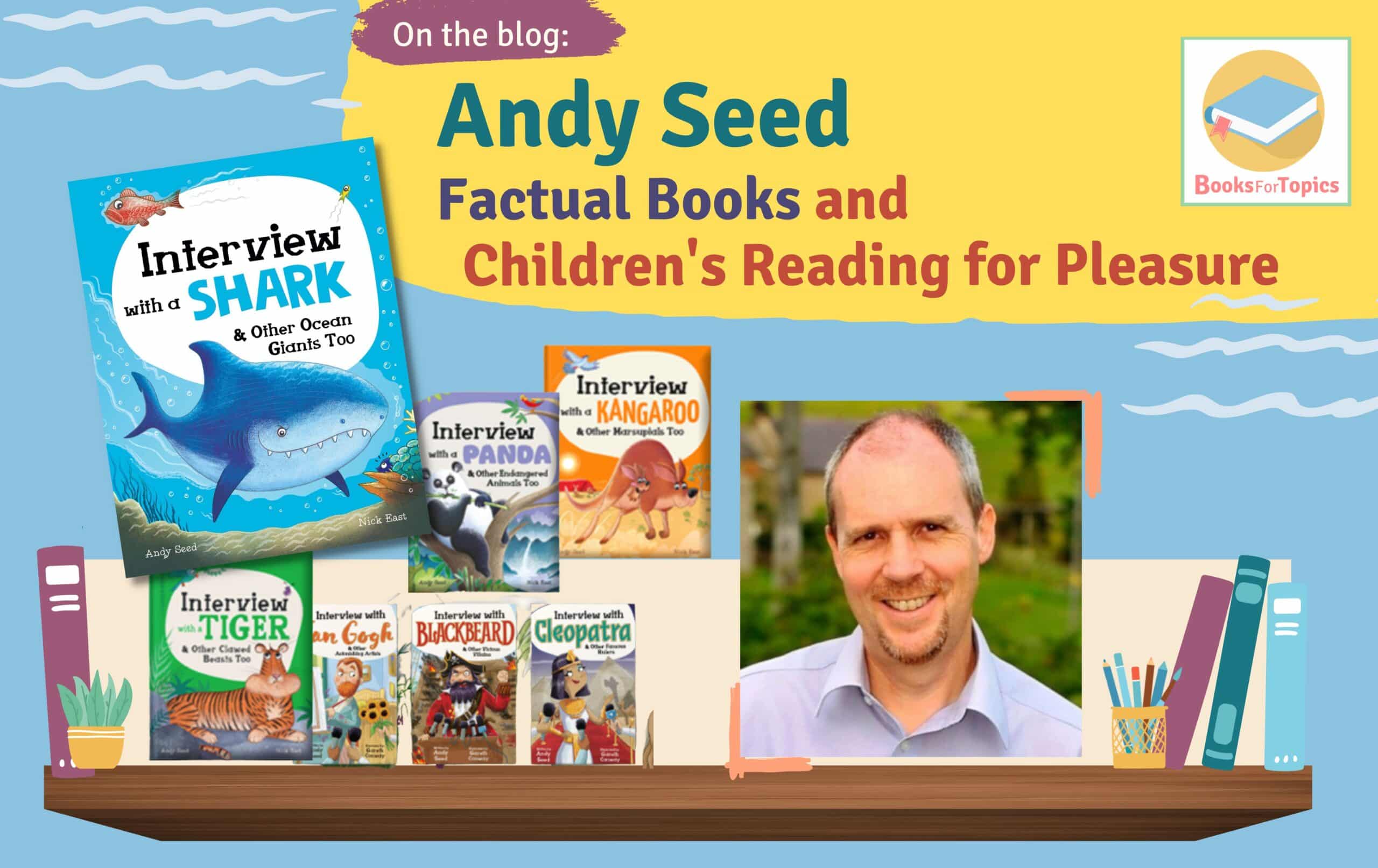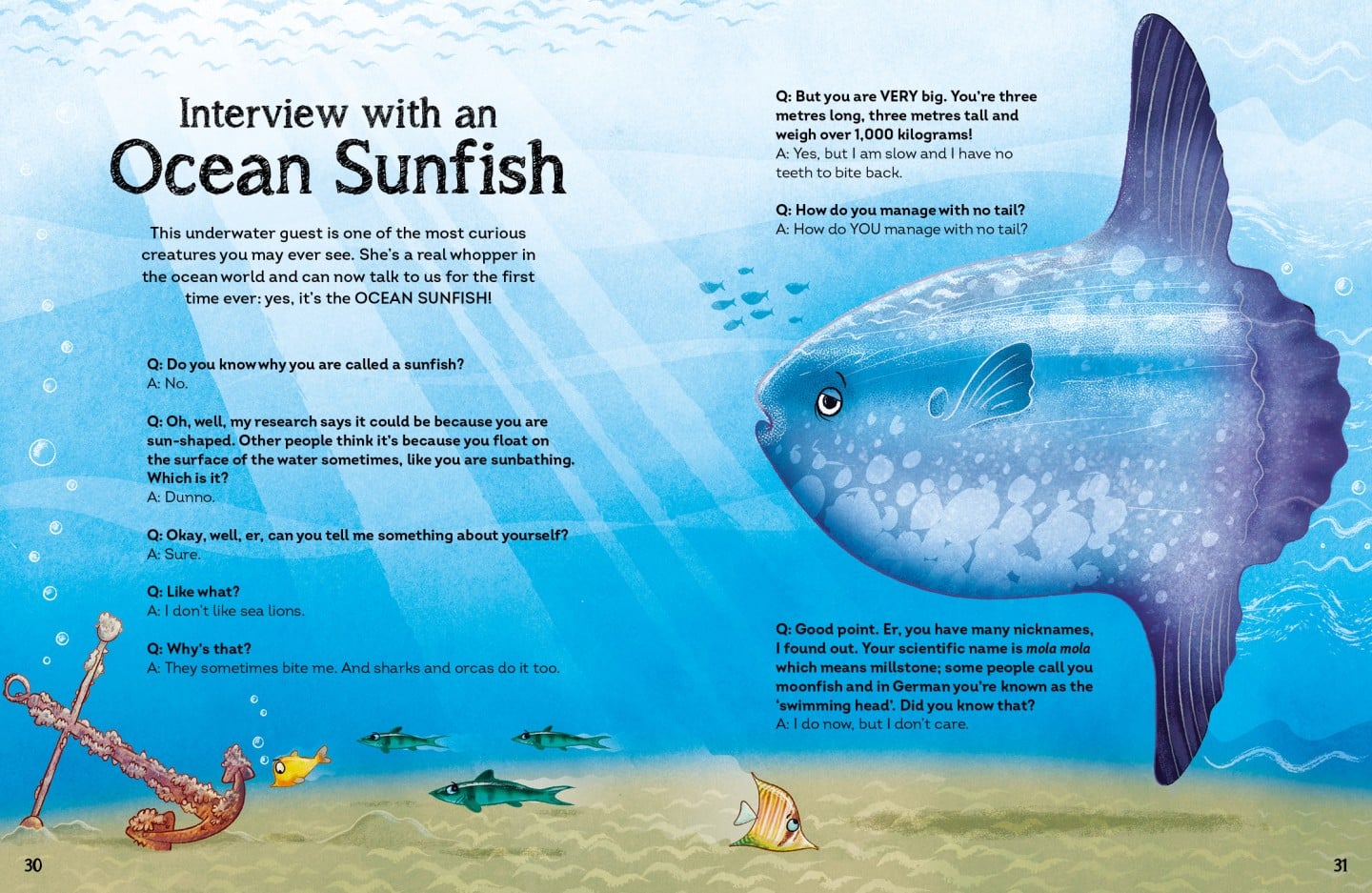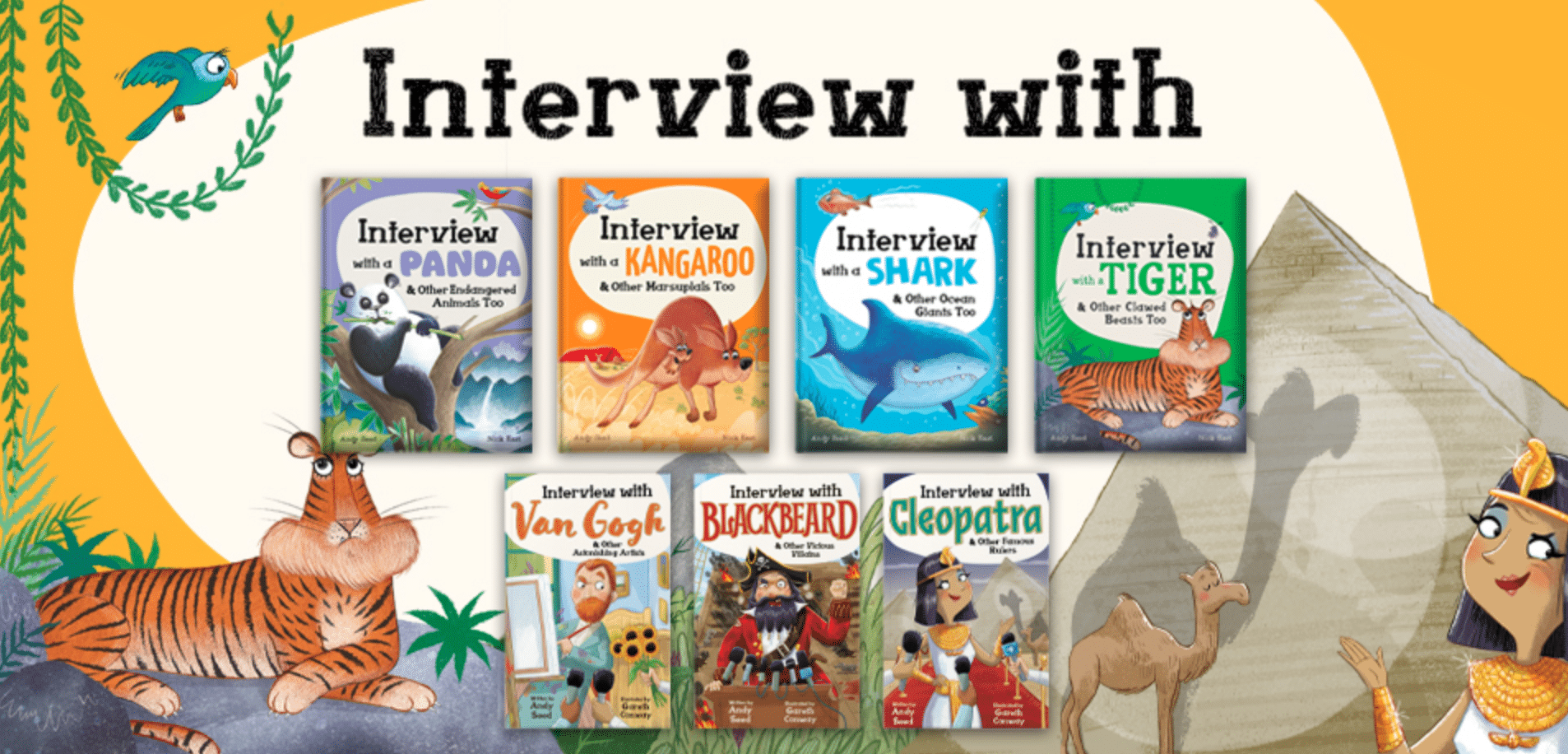Guest Post: Andy Seed
Author of the Interview with …series
Reading Factual Books for Pleasure
Is there anything better than seeing a kid enjoying a book?
Research proves (and anyone who knows stuff knows) that children who read are smarter, happier, calmer, more understanding and less stressed than children who don’t read for enjoyment. Books offer so much in terms of another world to inhabit, adventures to be had, amazing things to know and people to meet.
Why Do Some Children Prefer Non-Fiction?
As a boy of about 8 years old I recall being taken to our local public library and being allowed to choose some books. It was a momentous time for me and changed my life.
I was drawn to factual books because I like knowing stuff and I love pictures. Fiction hides away its glories and that’s why so many children find it hard to get into novels. They require work and concentration – all those characters and events to remember. But factual books are not like that: you can dip in and out, flick through absorbing the best bits, pick and choose, learn from the illustrations, find the facts that tickle your fancy.
That’s what I did back then in the 1970s. I read factual books for enjoyment, and I still do today. And these days they are better written, better designed, better illustrated and more carefully researched than ever. They are often things of beauty but also things of reliability, of fascination, of enormous variety and real depth. There is funny factual too. That’s what I write, because there’s an extra hook with which to grab those disengaged readers.
Does Non-Fiction Count as Reading for Pleasure?
Factual books work as a brilliant choice of reading for pleasure material for children. As adults, the great majority of us think too narrowly when it comes to the types of books that can (and should) be read for pleasure. Of course we want our children to be engrossed in top-quality fiction, and stories offer so much to young readers – but they don’t offer everything.
As an author, I visit a lot of schools all over the UK and my speciality is in getting children excited about books. Children love to do what is enjoyable (as we all do) so if you show them that books can be enjoyable, they’ll want to read them. Simple. And it is easy with today’s factual books for children because they are so attractive, interesting and visually rich. Plus they are full of great facts or, in the case of narrative non-fiction, amazing true stories – all children love those.
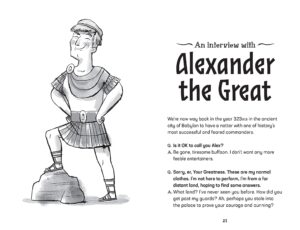 Why Do Factual Books Work So Well As a Way to Get Children Reading?
Why Do Factual Books Work So Well As a Way to Get Children Reading?
There are numerous reasons why factual works well for Reading for Pleasure:
The highly illustrated nature of many of them makes reading a more sensory experience (and helps ‘visual learners’ especially)
They’re not linear, so today’s digital generation can skim and skip about but still absorb.
The text is varied and so often more digestible for the less confident reader. Factual books use chunks, coloured panels, fact boxes, lists, captions, cartoons, speech bubbles and more, to make reading fun and easier.
Kids like true things – it adds a level of wow to know that certain things are really like that or events really happened.
Factual titles often make use of elements like puzzles, challenges, quizzes, questions, things to spot, stuff to make and do. These enrich and stimulate.
Children will read a book that is about something matching interests and hobbies. There is a factual book about everything.
Diversity – today’s factual books reflect our diverse world particularly well.
Final Thoughts
So, there we are: as adults who want children to read we should be advocates for good factual books. Many children prefer them, as I did, and then become readers and then move into enjoying fiction too – as I did! I think it will also really help if we all stop using that dreary, negative label ‘non-fiction’. Where else in life do we define things by what they are not? (“I’ve made you a non-plate of non-coffee, Edna – it’s next to the non-caboose. I’m just nipping out to see non-Dracula.”)
Just one last thing. If you’re an educator, librarian or parent or anyone who cares about children reading then it’s essential to read children’s factual books yourself. You can’t share and enthuse about what you don’t know. Where to start? I can highly recommend Interview with a Tiger and Interview with a Shark by Nick East and me. I guarantee kids will eat them up!
Andy Seed’s Interview Series is illustrated by Nick East and Gareth Conway and covers humorous Q&A interviews with animals and historical figures.
You can find Interview With a Shark featured on our Best Books for Year 3 list and our Oceans & Seas Topic Booklist.
You can purchase all of the books in the Interview series here.
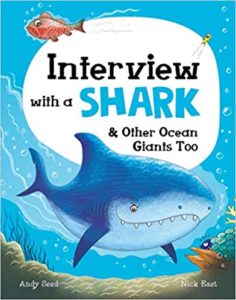 Thank you to author Andy Seed for stopping by our blog to share his thoughts on children reading factual books for pleasure.
Thank you to author Andy Seed for stopping by our blog to share his thoughts on children reading factual books for pleasure.
We also have more children’s non-fiction recommendations on our booklists.
Where next?
> Visit our Reading for Pleasure Hub
> Browse our Topic Booklists
> View our printable year group booklists.
> See our Books of the Month.








